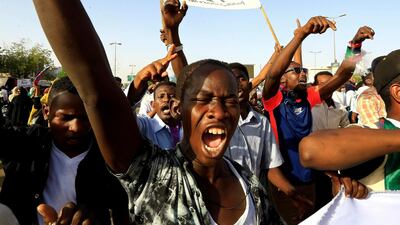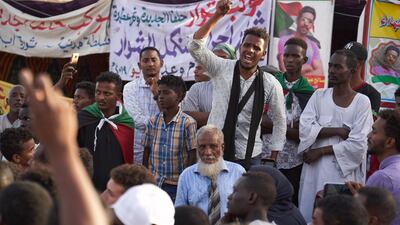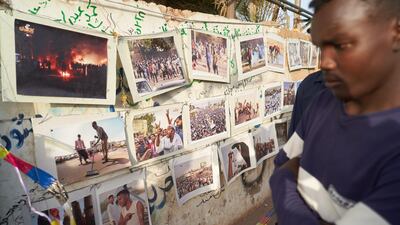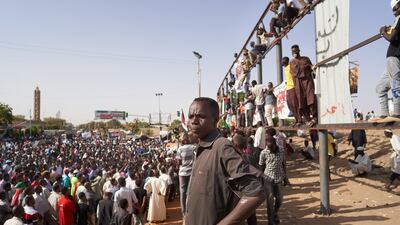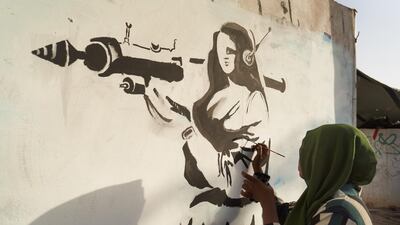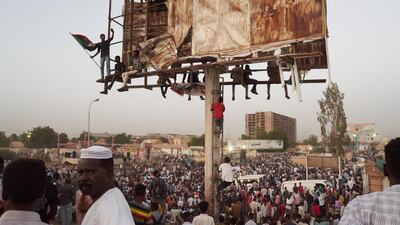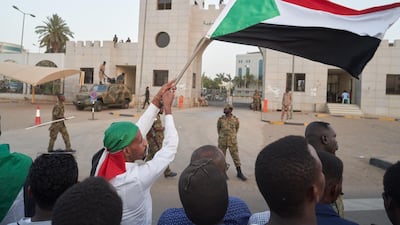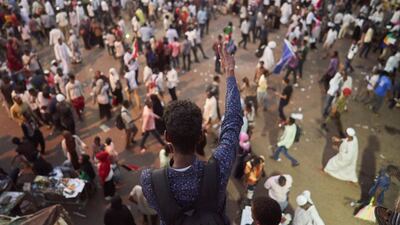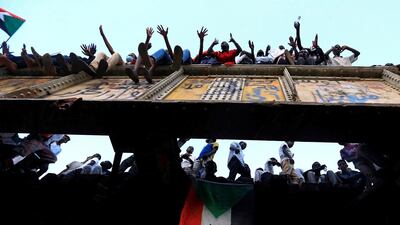Sudan's public prosecutor has ordered ousted president Omar Al Bashir to be interrogated on charges of money laundering and financing terrorism.
Mr Al Bashir was removed by the military on April 11 after months of demonstrations against his rule. He is also wanted by the International Criminal Court in the Hague for war crimes over the conflict in Sudan's Darfur region.
The prosecutor's statement on Thursday said other unidentified senior figures would also be investigated for financial crimes.
More than US$113 million (Dh415m) worth of cash in three currencies has been seized from Mr Al Bashir's residence, the head of Sudan's Transitional Military Council said last month.
General Abdel Fattah Al Burhan said a team of police, army and security agents found seven million euros, $350,000 and five billion Sudanese pounds ($105 million) during a search of the former president's home.
Mr Al Bashir, who swept to power in an Islamist-backed coup in 1989, ruled Sudan with an iron fist for three decades. During his rule the country was placed on Washington's list of state sponsors of terrorism over links with Islamist militants.
Al Qaeda founder Osama bin Laden lived in Sudan between 1992 to 1996.
In October 2017, Washington lifted a 20-year-old trade embargo imposed on Sudan, but kept the country on its terrorism blacklist.
Since last year however the two countries have been in talks to remove the country from the blacklist, but these have been suspended since Mr Al Bashir was ousted by the army on April 11.
"That is a conversation that we are not able to engage at the moment," a top State Department official, Makila James, told AFP last month during her visit to Khartoum.
"All of that is suspended as we try to assess what is the reality on the ground, what is the way forward."
Mr Al Bashir joins other deposed North African autocrats in facing legal action for financial crimes. Former Egyptian president Hosni Mubarak, overthrown in a popular uprising in 2011, was convicted along with his two sons of embezzling public funds while in power. Zine El Abidine Ben Ali, the former Tunisian president who was toppled just weeks before Mr Mubarak, was found guilty of theft and illegally possessing jewellery and large amounts of cash.
Meanwhile thousands of Sudanese have been gathering outside the defence ministry in response to a call by an alliance of activists and opposition groups to join a million-strong protest march through Khartoum.
The Freedom and Change Forces alliance said on Thursday it had sent the Transitional Military Council a draft constitutional document containing its vision for the transitional period.
Protesters and activists have been negotiating with the TMC to form a joint civilian-military body to oversee the country until elections. But the parties are deadlocked over who would control the new council and what the features of a transitional government would be.
The constitutional draft, seen by Reuters, outlines the duties of a sovereign transitional council which the opposition groups hope will replace the TMC, but does not specify who would sit on it. It also outlines the responsibilities of the cabinet and a 120-member legislature.
Opposition groups say the ruling council must be civilian-led and have promised to maintain a sit-in outside the defence ministry until their demands are met, but the TMC has shown no sign of willingness to relinquish ultimate authority.
At a televised news conference, a spokesman for the activist alliance said it expected a response from the military to its constitutional draft within two or three days. The TMC acknowledged receiving the draft and said in a statement that this step pushes dialogue forward.

